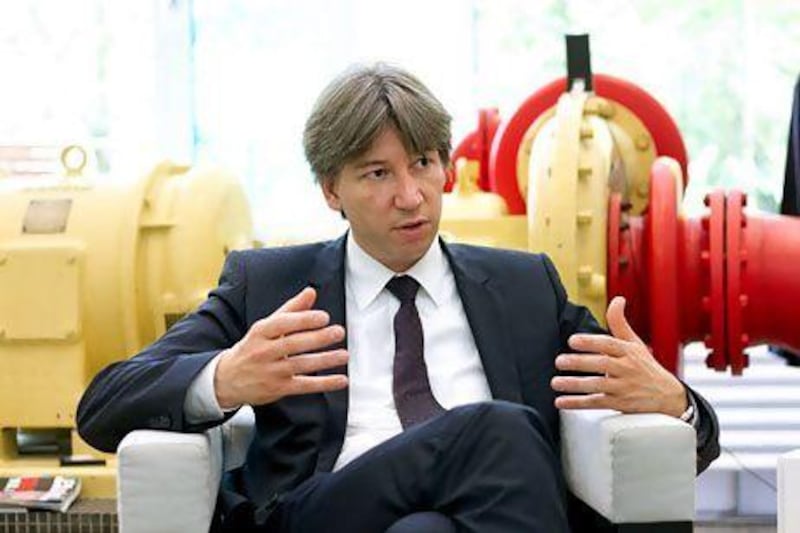SolarWorld, based in a quiet suburb of the German town of Bonn, is one of the western solar industry's most potent weapons.
It is leading trade cases on behalf of American and European Union solar companies against Chinese competitors for selling products below their manufacturing cost, and has succeeded so far in getting the EU to launch an investigation and the United States to adopt anti-dumping policies.
Strategy for the international trade war is crafted from within an old waterworks set amid low-rise apartment blocks outside the centre of Bonn, Germany's capital for renewables.
The country is cooperating with the Qatar Foundation to create factories for the raw materials used in solar panels but its primary factories are domestic and in the US.
Here, Milan Nitzschke, its vice president, talks about the view from Germany.
What's happening in China's solar industry today?
It's a non-market economy, so the government says what has to happen. The government has made a very accurate five-year plan on solar where they describe how the industry should develop in that five years, and what they are forcing them to achieve is a target production cost. China has been keeping up with Europe and the US in so-called low-tech businesses. They've tried to get market share in mature markets, and they've tried to get more and more market share. And now we're talking about a future market. The strategy is to get market share before that market really grows. The solar market is expected to be in a few years as big as the semiconductor market.
How soon?
I would say 2020. But if you know that it will be like that, then it makes sense now - when your competitors are not as big as they will be in five to 10 years - to get rid of your competitors and permeate the market. And when the market grows, of course China can increase prices. So that's a very, very simple strategy. And if you are not inside a market economy and just thinking as a government what you want to achieve within the next five years, of course it makes sense to do exactly that. Now China's complaining that the US started a trade war. The fact is that China started a trade war three years ago.
Would SolarWorld consider opening factories in China?
It doesn't make sense because we are right here in our main markets for today. We are the only larger company in Europe in the US that decided to really stay here. If the Asian market or the African market grows, in the future, then of course we can think about a module assembly factory there in those markets. But the company strategy is up till now just to stay in Europe.
Any plans to buy competitors?
Mostly this makes no sense, because in the market situation you have now, you can only compete with the newest technology.
And all you can buy is old technology.
There are a lot of companies that haven't been able to invest in the last years because of their financial situation.
We invested. We opened a wafer factory. We improved our cell factory. We have the newest factories in the world. Therefore if we want to grow, we grow organically with our own investments.
[ ayee@thenational.ae ]





